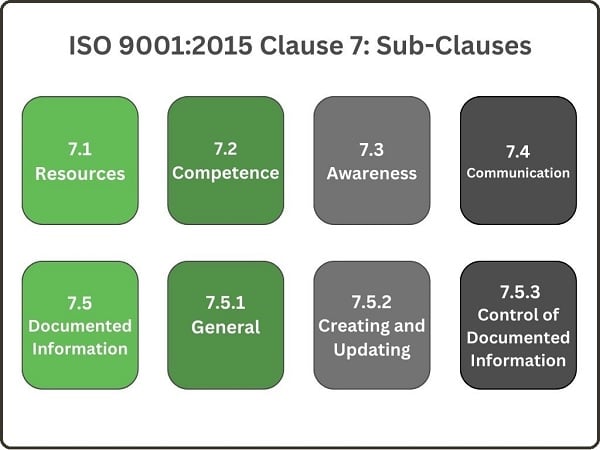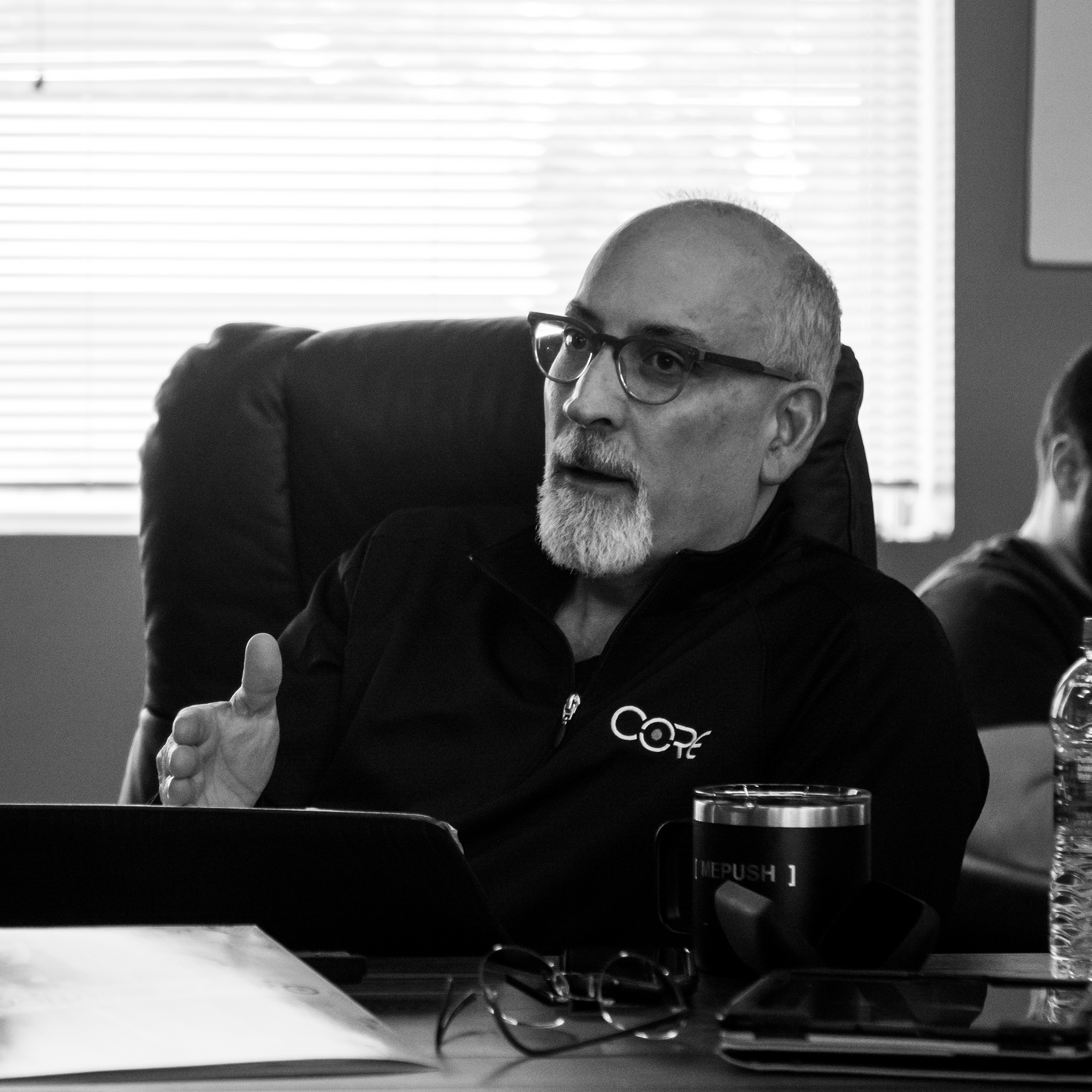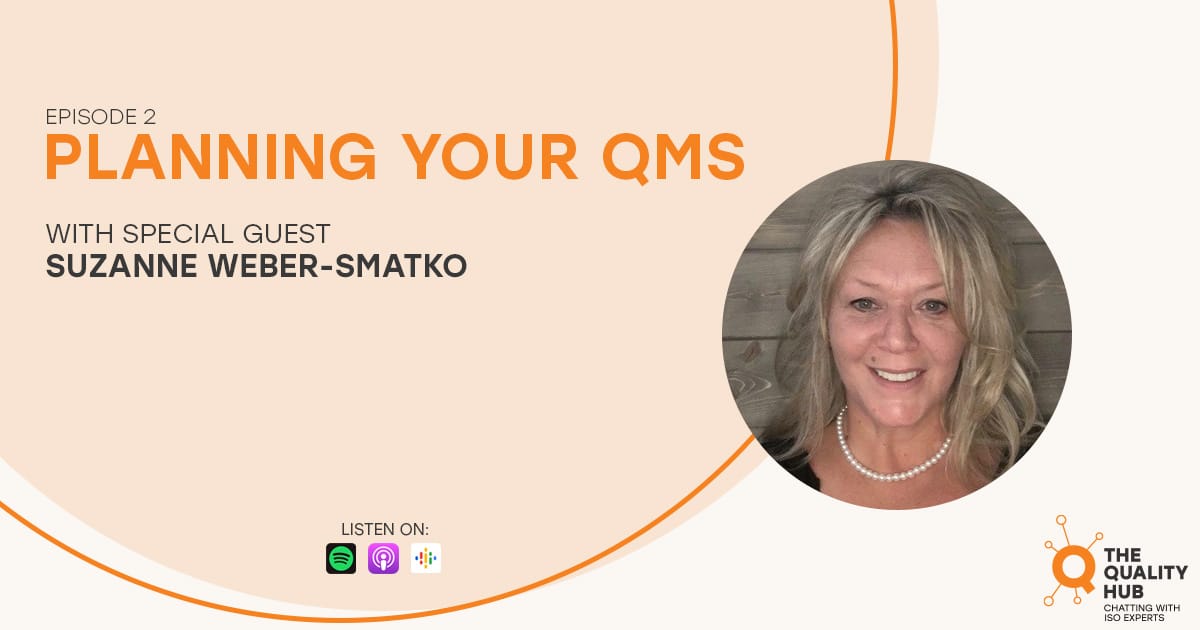ISO 9001:2015 Clause 7.4
What is ISO 9001:2015 Clause 7.4?
Clause 7.4 of ISO 9001:2015 is titled “Communication.” This section outlines the requirements for an organization regarding its internal and external communication processes related to the Quality Management System (QMS).
Key points outlined in Clause 7.4 include:
General Requirements:
The clause emphasizes the need for the organization to plan and establish effective communication processes within the QMS and with relevant external parties.
Internal Communication:
It specifies that the organization should ensure that appropriate communication channels are established to facilitate effective communication among various levels and functions within the organization. This helps in sharing information regarding the QMS, its performance, objectives, and any other relevant information.
External Communication:
The clause also addresses communication with external parties, such as customers, suppliers, regulatory bodies, and other stakeholders. It emphasizes the importance of determining what information needs to be communicated externally, ensuring it’s accurate, and establishing appropriate communication channels for these interactions.
Get a Free Quote
Relevant Information:
Organizations are required to consider the relevance and appropriateness of the information being communicated, ensuring that it’s conveyed promptly and understood by the intended recipients.
Overall, Clause 7.4 underlines the significance of establishing clear and effective communication channels both within the organization and with external parties to ensure the smooth functioning and effectiveness of the Quality Management System.
How do you comply with Clause 7.4?
Compliance with Clause 7.4 of ISO 9001:2015 involves several steps to ensure effective communication within and outside the organization regarding the Quality Management System (QMS). Here are some ways to comply with this clause:
Communication Plan:
Develop a communication plan that outlines who needs what information, when, and how. This plan should encompass internal communication among different departments and levels within the organization and external communication with stakeholders, customers, suppliers, and regulatory bodies.
Establish Clear Channels:
Ensure there are established and clear communication channels, both formal and informal, such as meetings, emails, newsletters, intranet, and other platforms. These channels should facilitate the flow of relevant information across the organization and to external parties.
Training and Awareness:
Provide training to employees regarding the importance of effective communication within the QMS. Ensure they understand their roles in maintaining good communication practices and how their actions impact the system.
Document Control:
Implement robust document control procedures to ensure that information is accurate, up-to-date, and accessible to those who need it. This includes maintaining and updating manuals, procedures, work instructions, and other documentation related to the QMS.
Feedback Mechanisms:
Establish mechanisms for feedback from stakeholders, customers, and employees. Encourage an open environment where concerns, suggestions, and information can flow freely, allowing for continuous improvement in communication processes.
Regular Reviews:
Periodically review communication processes to assess their effectiveness. This involves evaluating whether the established channels are working efficiently if the information is reaching the right recipients, and if any adjustments or improvements are needed.
Cultural Emphasis:
Foster a culture that values communication. Encourage open dialogue, active listening, and transparency within the organization. Recognize and reward good communication practices to reinforce their importance.
Compliance Monitoring:
Continuously monitor and measure the effectiveness of communication practices against the established criteria. This can involve metrics such as response times, accuracy of information conveyed, resolution of issues through communication, etc.
By implementing these practices, organizations can ensure compliance with Clause 7.4 of ISO 9001:2015, fostering effective communication that supports the objectives and requirements of their Quality Management System.

Other ISO 9001:2015 Clauses:
What is the History of Clause 7.4?
Clause 7.4, titled “Communication,” in ISO 9001:2015 is part of the broader structure of ISO 9001, which is an internationally recognized standard for Quality Management Systems (QMS). The history of this clause can be traced back through the evolution of the ISO 9001 standard itself.
ISO 9001 has undergone several revisions since its inception. The standard was first published in 1987 and has seen subsequent revisions to reflect changes in industry practices, quality management principles, and international requirements.
Communication has been an Integral Part
The focus on communication within the QMS has been an integral part of ISO 9001 throughout its various versions. However, the specific clause numbering and detailed requirements have evolved.
In earlier versions of ISO 9001 (before 2015), the aspects related to communication were often included within broader sections such as “Management Responsibility” or “Quality Management System Requirements.” The emphasis on communication, while present, might not have been as explicitly outlined in a standalone clause.
ISO 9001:2015
With the release of ISO 9001:2015, the structure of the standard was revised to follow the High-Level Structure (HLS) format, aligning it with other management system standards. This included a more distinct and explicit clause dedicated to communication (Clause 7.4). This change aimed to emphasize the critical role of effective communication in ensuring the success and performance of the QMS.
The evolution of Clause 7.4 within ISO 9001 reflects the growing recognition of the importance of communication as a fundamental element for organizations to achieve their quality objectives, enhance stakeholder satisfaction, and continually improve their processes.
Each revision of the ISO 9001 standard has refined and enhanced the requirements for communication within the QMS, recognizing its significance in achieving and maintaining quality standards within organizations across various industries.
Helpful Resources: Planning your QMS Podcast
In this week’s podcast, Suzanne Weber-Smatko, Manager of Consulting Services here at Core Business Solutions, will guide us on how to start planning your QMS. Suzanne discusses the creation of a quality manual, the importance of using the PDCA cycle when beginning the process of planning, and the importance of maintaining documentation. Learn More
Consulting Support for ISO 9001
Every year, we help hundreds of small businesses achieve ISO 9001 certification. Support for ISO 9001 is available through any of our Consulting Programs As an American business with a story like yours, we know that time is valuable. Our expert consultants are here to take on the difficult, technical aspects of certification so you can focus on your business. They’ll work with you every step of the way until you’re successfully certified. Interested? Get a Free Quote.
In many industries, ISO 9001 has become a supply-chain requirement. When landing a big contract, ISO 9001 certification could make all the difference.

About Core Business Solutions
"Core Business Solutions was started by my brother, Mike Dawson, and myself, true entrepreneurs at heart looking for a better way to make a living and help small businesses improve the quality of the products and services they provide.
The bottom line: we are real people that have developed a team to come along side you to help you grow and succeed."
-- Scott Dawson, President
Related Standards
We provide consulting support for various other standards, as well as support for companies seeking multiple certifications through an Integrated Management System.
AS9100
Aerospace Manufacturers
AS9120
Aerospace Distributors
ISO 14001
Environmental Management Systems
ISO 27001
Information Security Management Systems
ISO 20000-1
Service Management Systems
ISO 45001
OH&S Management Systems
ISO 13485
Medical Device Manufacturers
AS9100
AS9120
ISO 14001
ISO
20000-1
ISO 27001
ISO 45001
ISO 13485
Equip Your Business to Meet ISO 9001 With CORE
At Core Business Solutions, we’re here to equip your company for success in meeting ISO 9001 requirements. We’ve helped hundreds of small businesses grow and deliver the best solutions to their clients. We provide ISO training services, consulting help, and compliance software and to help you get certified and stay certified. We focus on optimizing your processes and helping you implement an ISO-compliant QMS. When you partner with us, you’ll get the tools and help you need for success. For more information on the ISO 9001:2015 standard, please visit our articles page. You can also call our consulting office at 866-354-0300.
Do you want to update your existing ISO 9001 QMS System or refresh it?
We provide consulting services to assist you in your ISO 9001 Quality Management System refresh. We listen, conduct a gap analysis, update your Quality Policy and any necessary documentation or procedures, find areas of waste or improvement, simplify and automate. And we do it fast. Core offers firm, fixed pricing. Download our information sheet today to learn more or call us at 866-354-0300 Extension 2.

